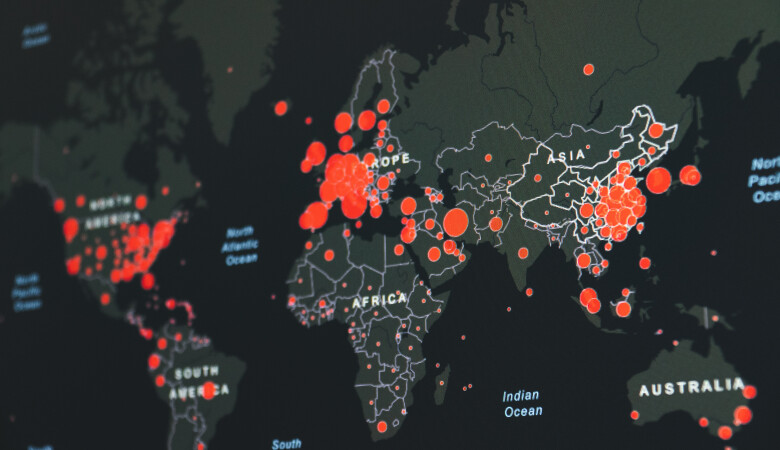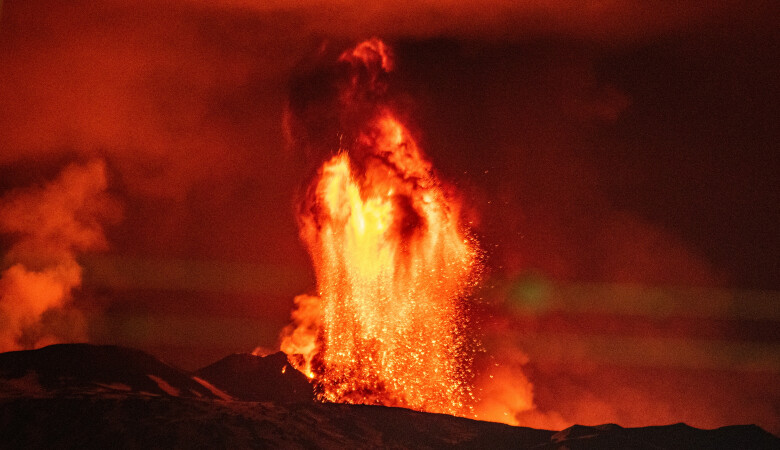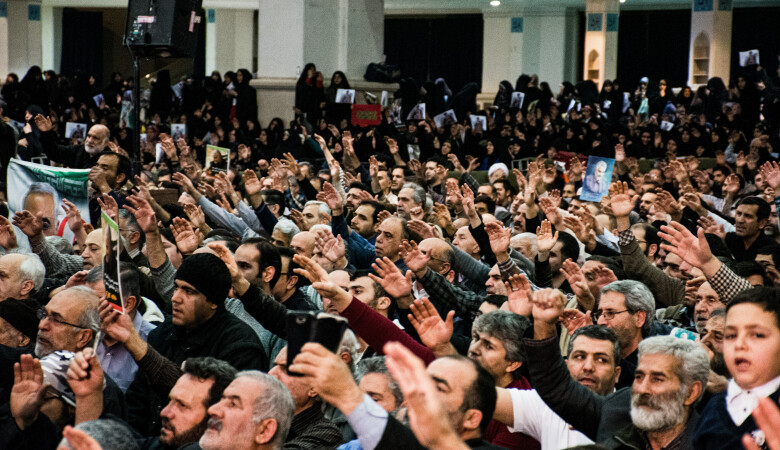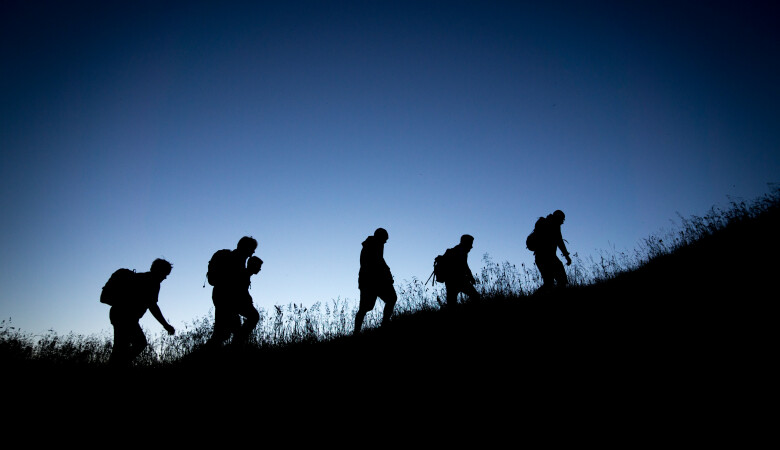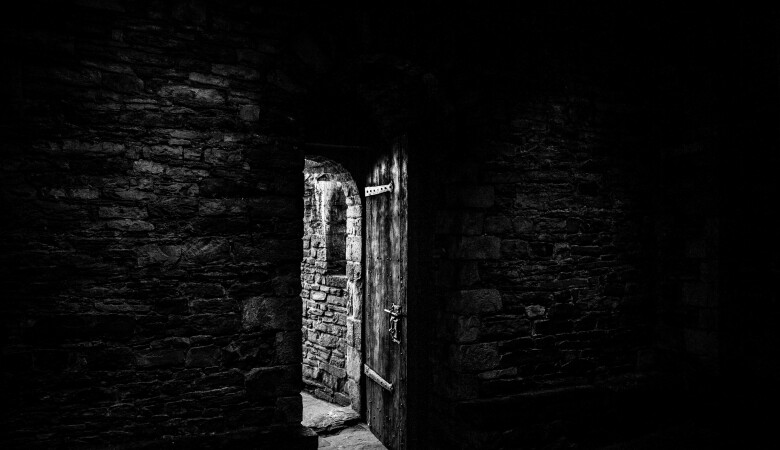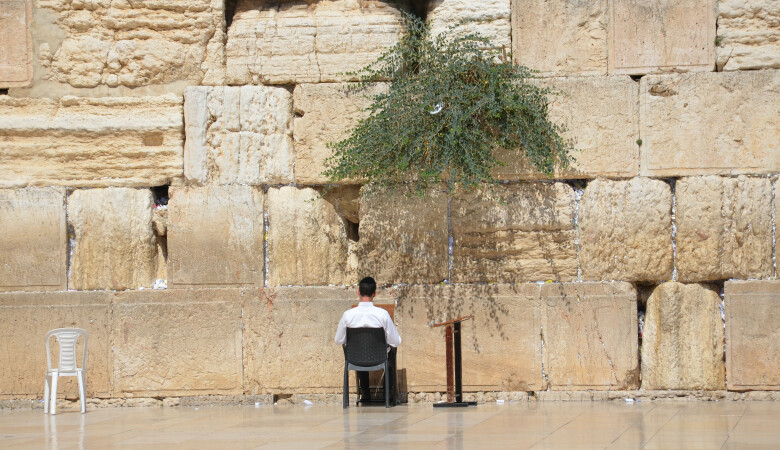Series: Mark
Christ’s Powerful Ministry Summarized (Mark Sermon 12)
April 10, 2022 | Andy Davis
Mark 3:7-19
Calling, Miracles, Demons
In the sermon on Mark 3: 7-19, Andy Davis expands on this summary of Jesus’ earthly ministry: the physical and spiritual healings; the evidence of Christ's deity; and the twelve apostles' call.
- sermon Transcript -
Turning your Bibles to Mark chapter 3, we continue our study in this incredible gospel. As we look at Christ’s powerful ministry just summarized, kind of a summary statement that the gospel of Mark gives us here. Throughout Jesus's ministry, he was surrounded daily by huge crowds, huge crowds crushing him, invading his personal space, demanding ministry from him, especially healings. Most of these people had, it seemed far less interest in his preaching, in his doctrine, than they did in getting their bodies healed or getting their stomachs full. Jesus knew their hearts better than they did. He knew that a mob is fickle, that nothing of lasting consequence happens by unruly self-focused crowds. A crowd, then a short time later, the crowd dissipates and it soon throngs after some other fad. Jesus himself personally thinned out such a crowd. In John chapter 6, right after the feeding of the 5,000, the people came back the next day for another physical feeding, and Jesus urged them to lift their eyes heavenward and also inward to the health of their souls. He said in John 6, "I tell you the truth. You're looking for me, not because you saw miraculous signs, but because you ate the loaves and had your fill. Do not labor for the food that spoils, but for the food that endures to eternal life, which the son of man will give you." And they asked him, "What must we do to do the works that God requires?" Jesus answered, "The work of God is this, to believe in the one he has sent." Jesus wanted them to feed on a different kind of bread, to feed on his atoning work, his body and his blood given up for sinners, given up in death for the forgiveness of their sins. So in John 6, he turned up the heat and taught them this shocking statement. John 6:51, "I am the living bread that came down from heaven. If anyone eats of this bread, he will live forever. This bread is my flesh, which I will give for the life of the world." Oh, by the end of the day, that huge self-focused, worldly minded throng had been greatly thinned down. John 6:60 says, "On hearing it, many of his disciples said, ‘This is a hard teaching, who can accept it?’ And from that time on many of them no longer follow Jesus.” Jesus was not surprised by that. He did it on purpose, to thin down that crowd.
Now in the account we're looking at today, in Mark 3, we come to another throng, a massive pulsating crowd that was following Jesus, I think for similar reasons. We also come to a remarkably efficient summary of Jesus' earthly ministry. We have that huge crowd. They're desperate only for physical healing, not really aware of what their true needs were, the salvation of their souls. They represent the vast mission field of the world, the teaming millions of lost souls who need forgiveness far more than they need any earthly thing, more than they need physical healing, more than they need material prosperity, more than they need their stomachs filled with bread, more than they need any sensual pleasure or earthly blessing. Forgiveness of sins, reconciliation with almighty God, that's what they need. Teaming multitudes, crowds and crowds of people pressing in on Jesus, physically crushing him, wanting healing, and for the most part, it seems not anything more.
We also have in this account, terrorized demons who know the truth about Jesus and who are falling down before Jesus and are screaming right theology at Jesus, from their infinitely wicked beings, screaming at Jesus, "You are the son of God," and Jesus forbidding them to speak those holy words. They are the hidden enemies of the gospel of Christ, the hidden enemies of the advancing kingdom of Jesus Christ. The servants of Satan from whose dark kingdom, souls must be rescued from invisible chains that are holding them.
Thirdly, in this account, we have the calling of the twelve apostles, chosen by Christ to lead the worldwide advance of the kingdom of Jesus Christ. Twelve ordinary men who change the future course of the world by the power of God and by the simple ministry of preaching the preached word. This chapter and this section that we're walking through today captures these basic elements that's going on even to this present day. This is how the kingdom of Christ is spread from a small upper room one day in one city in Jerusalem, and moved out even to the ends of the earth. By the time Jesus' ministry will have finished, by the time all the work is done, there will be a multitude greater than anyone could count from every tribe and language in people and nation, no longer a mindless pulsating, earthly minded crowd, but changed from a mindless earth focused mob to a glorious heavenly congregation.
Christ’s Ministry: The Mission Field
It begins with the mission field, crushing crowds needing healing. Look at verses 7-10. "Jesus withdrew with his disciples to the lake and a large crowd from Galilee followed. And when they heard all that he was doing, many people came to him from Judea, Jerusalem, Idumea, and the regions across the Jordan and around Tyre and Sidon. Because of the crowd, he told his disciples to have a small boat ready for him to keep the people from crowding him, for he had healed many so that those with diseases were pushing forward to touch him." So Jesus withdraws. He withdraws to the sea with his disciples. Why? Well, it's because of the determination of his human enemies to kill him. Jesus had flouted the ironclad grip, the authority of the Pharisees in their legalism over the Sabbath. He'd allowed his disciples to pick heads of grain and rub them together in their hands and eat them on the Sabbath and defended it, and he defended it in shocking terms. He claimed to be the Lord of the Sabbath, something only God could say. No one else in history could ever make such a claim. " The Son of Man is Lord, even of the Sabbath," [Mark 2:28].
No one else in history could ever make such a claim. " The Son of Man is Lord, even of the Sabbath," [Mark 2:28].
Then the next Sabbath, that seems the very next Sabbath in the next account in Mark's gospel, Jesus healed a man on the Sabbath with a shriveled hand in the synagogue. He did it right in front of men who are determined to catch him in some faults and find accusation, and accuse him and arrest him. He defended it with a clear question, Mark 3:4, "Which is lawful on the Sabbath, to do good or to do evil, to save life or to kill?" After healing this man, this was the reaction of his enemies in Mark 3:6, "The Pharisees went out and began to plot with the Herodians how they might kill Jesus." Verse 7, "Jesus withdrew, Jesus withdrew to the Sea of Galilee." It was not yet his time to be arrested and brought to trials, it was too early for that. He works a strategic retreat, knowing the mind of his enemies, knowing what they intended, he retreats. He gets away from them, temporarily kind of turning the heat down under the pot, lest it boil over too soon.
But along with this, we have a huge crowd following. By this time Jesus' reputation as a healer has spread far and wide. This was openly asserted in Mark's gospel, Mark 1:28, "News about him spread quickly over the whole region of Galilee." A few verses later, Mark 1:32 says, "That evening after sunset, the people brought to Jesus all the sick and demon possessed and the whole town gathered at the door, and Jesus healed many who had various diseases." Later in chapter 1 after healing the leper, Jesus commanded him, "Remember not to tell anyone." Instead, the man went out and spread the news everywhere. In Mark 1:45, as a result, Jesus could no longer enter town openly, but stayed outside in lonely places, yet the people still came to him from everywhere, huge crowds thronging around Jesus. Then back home in Capernaum, in Mark 2 again, the word spread again, and crowds thronged so large that as you remember, the four friends bringing their paralyzed friend to Jesus, can't get close to Jesus, can't even get near him. They had to destroy the roof to get the paralyzed man down in front of Jesus. Mark, 2:2, "So many gathered. There was no room left, not even outside the door, and he preached the word to them." So huge throngs. Again, Jesus healed the paralyzed man and linked it to his authority to forgive sins. “So that you might know that the Son of Man has authority on earth to forgive sins, he said to the paralyzed man, ‘Rise and walk,’ and the man did. He took up his mat and went home.”
The reaction is again huge. In Mark 2:13, a large crowd came to him and he began to teach them beside the lake. Then later at Levi's house, a huge crowd of tax collectors and sinners gathered, and there seemed to have been a massive revival there as many of them turned to faith in Christ, but again, a huge throng. So by the time we get to today's account, the news about Jesus as a healer is spread far and wide, and even larger crowds are coming. Look again, verses 7-10, "Jesus withdrew with his disciples to the lake and a large crowd from Galilee followed." Verse 8, "When they heard all he was doing, many people came to him from Judea, Jerusalem, Idumea, and the regions that crossed the Jordan around Tyre and Sidon. Because of the crowd, he told his disciples to have a small boat ready for him to keep the people from crowding him for he had healed many, so that those with diseases were pushing forward to touch him."
We see the diversity of this huge crowd. They're from Galilee, his hometown, they're from Judea and Jerusalem, the Southern part of Israel. Jews, no doubt hearing what Jesus was doing, wanting to come, then from Idumea and the regions across the Jordan around Tyre and Sidon, its listed there, it's a mixed crowd. Almost certainly many Gentiles are included at this point. The region of Idumea was Southwest of Judea, basically made up of Edomites, descendants of Esau, the Greek name for Edom. Tyre and Sidom were merchant cities, port cities, Gentile regions on the Mediterranean shore. The size of the crowds are huge and it's a mingled group, probably Jew and Gentile together. The text calls it a great multitude, and there's an urgency in the crowds. The people were crushing Jesus, they're pressing in on him. Remember that Jesus ordinarily liked to heal individually by touch. There's no account of Jesus doing mass healings, and so it seems like he did it one at a time, this real bottleneck where he wanted to interact with people, even to touch them. Sometimes people would be healed just by touching his garments, like the woman with the bleeding problem that we'll read about, God willing, later in Mark 5. Then again in Mark 6:56, it says, "Wherever he went into villages, towns or countryside, they placed the sick in the marketplaces and they begged him to let them touch even the edge of his cloak, and all who touched them were healed." This huge throng of people threatened to crush Jesus with their urgent needs, and it's pretty obvious what their motive is, pretty obvious what they want. They want physical healing. When you're hurting, when you're sick, when you're dying, when you're disabled, when you're crippled, blind, leprous, paralyzed, or a loved one is any of those things, it seems like there's nothing else you care about but having that pain alleviated, nothing else matters.
And here's Jesus. Remember the elements of his healing ministry that we zeroed in on a number of weeks ago. Jesus' healing ministry was successful in every case, it was universal. There was no one he could not heal. There was no disease he couldn't address. It was effortless. His physical healings were effortless, instantaneous. People were healed instantaneously as though they had never had the malady at all. The leper skin is instantly restored. The man with the shriveled hand, it's like his hand was always working normal and fine. As I said, his healings were personal. He wanted an interaction with them. This is big. His healings were free, he didn't charge anything. He said to his disciples when he sent them out to heal, "Freely you oversee, freely give," and the healings were varied. He handled different cases, different ways. It was something different every time. That was Jesus' healing ministry. Their urgency bordered on rudeness, born from desperation, verse 10, "For he had healed many so that those with diseases were pushing forward to touch him." When the crowd is wanting to crush him, they're falling in on him, falling down in front of him, pulling on him, pleading with him, pulling on his garments. That's what it was like, desperate and sad people. Jesus, a man of sorrows and familiar with suffering, drinking in all of that misery as if absorbing it like a sponge into himself. It was difficult for him and his disciples to do anything normal, for him to eat or rest, or take a break, or do anything. It was impossible.
Jesus' priority in all of this as we've seen is his preaching ministry. The disciples, the followers of Jesus, they knew. They were there for more than the healing. Maybe they'd been healed already. They weren't there for healing. They weren't there for feeding. They were there because they wanted to hear the word of God. They hungered for the word of God. They knew that no man spoke like this man. No one had ever taught like Jesus and they wanted it. They wanted to drink that in, and this was definitely Jesus' priority as well. All of the healings, as spectacular as they were, all of them were temporary. And there's no promise that some other malady or some other injury might not come to you next week or next month or next year, we're still under the curse of Adam. We're still under the curse of misery and sin and death. All the healings were temporary, though they were real healings. The preaching of the word of the kingdom was the essential. That was the healing needed by all these sinners, though their felt needs made them desperate, their felt needs made them come. Jesus knew their true need was the ministry of the word. He commanded his disciples to get a boat ready for him. Look at verse 9, "Because of the crowd, he told his disciples to have a small boat ready for him to keep the people from crowding him." Sitting out on a little boat in the lake gave Jesus the twin benefit of some space, physical space away from the crowd, keeping the crushing crowds at bay, and it also facilitated preaching through the acoustics, the sound reverberating off the surface of the water. More people could hear him preach, and we're going to see that again in the next chapter, chapter 4.
Christ’s Ministry: The Enemy
All right. So that's the crowd. Let's talk about the enemies, the seething demons needing restraining. Look at verse 11 and 12, "Whenever the evil spirit saw him, they fell down before him and cried out, 'You are the son of God,’ but he gave them strict orders not to tell who he was." Again, the demons, again, the unclean spirits. This has already been a big theme in Mark's gospel, and it's going to continue to be. Demons are spiritual beings, they're fallen angels or rebellious angels. Here in the text they are called unclean spirits. They're filthy, they're vile spiritually, they're polluted. They're morally dark beings, twisted in their inner beings, and Jesus's authority over them is strong evidence of his deity and the power of his kingdom. Not only did Jesus rule over the physical realm over every disease and sickness among the people. He also ruled effortlessly over demons, over the spiritual realm, the supernatural realm, for every demon was terrified of Jesus. They're terrified of him, which I find greatly encouraging. Don't you? How terrified demons are of Jesus. I just want to hide behind Jesus; just get behind him because the demons that are still active, though we don't see them, they didn't retire after Jesus ascended to heaven, but they're still invisibly active doing their mischief, but they're terrified of Jesus in these gospel accounts. They fall down before him. They clearly acknowledge his power over them. They have no recourse but to beg for his mercy in many cases. What are they afraid of? They're afraid of him and they're afraid that he's going to torture them before the appointed time. They fully expect to be tortured in the lake of fire. None of them are in the lake of fire now, no being is. That's in the future, but there is this place called the pit, Tartarus, or the abyss, that is a place of demonic torture, or torture of demons, and they're afraid of it. So we have in Luke 8:31, "They begged him repeatedly not to order them to go into the abyss." The word just literally means “bottomless”, it's a place of torment. II Peter 2:4 says, "For if God didn't spare angels when they sinned, demons, but threw them down into Tartarus, and deliver them to be kept in chains of darkness until judgment." These demons have freedom to roam and cause mischief, and they're afraid that they're going to lose that freedom, and they're going to be tortured before the final punishment that they certainly will have, so they cry out before him. They're shouting, yelling, screaming. They're unruly and seething, churning rebels, no peace, no serenity, nothing but seething rage, but they get their theology right.
Their doctrine is right about Jesus. They shout out, "You are the son of God." They have no doubt whatsoever about his identity. Earlier, the demon in the synagogue of Carpenium had said, "I know who you are. The holy one of God,” testifying to Jesus' perfect moral purity as sinlessness. They knew he had never sinned. Later in Mark 5, the demoniac of the Gerasenes, legions of demons will say this, he shouts at the top of his voice, "What do you want with me Jesus, son of the most high God? Swear to God that you won't torture me." They're so afraid of Jesus, but they're getting the theology right. James talks about this in James 2:19, "You believe that there is one God, good. Even the demons believe that and they shutter." So they get their doctrine right and they're terrified. Jesus silences these demons, verse 12, “He gave them strict orders not to tell who he was.” They're on a gag order, they're silenced by the sovereign power of Jesus. They're not allowed to talk about him. Why is that? They're saying the right things, but Jesus does not want demons as his mouth pieces. He doesn't want demons as his representatives, so he silenced them. He's going to send out the apostles to preach. They're going to be his official representatives and so also the entire church.
Christ’s Ministry: The Messengers
So we come now to them, the messengers, ordinary men who are appointed. Look at verse 13-15, "Jesus went up on a mountain side and called to him those he wanted and they came to him. He appointed twelve, designating them apostles, that they might be with him and that he might send them out to preach and to have authority to drive out demons." This is Jesus' long range plan. While demons were forbidden from speaking his name and his kingdom, the twelve apostles would be commissioned to do precisely that and to proclaim in Jesus name, the forgiveness of sins. These apostles would at the human level be the foundation of the church that would come. Paul says in Ephesians 2:20 and 21, “The church is built on the foundation of the apostles and prophets with Christ Jesus himself as the chief cornerstone. In him, the whole building is joined together and rises to become a holy temple in the Lord." That's built on the foundation of the apostles and prophets it says. These apostles were sovereignly called, appointed by Jesus.
He went up on a mountain side. Well, why is that? As usual, it was a place of isolation for him, a place of prayer, a place where he could have intimate fellowship with God. He went away from the throngs to pray. Luke 6 tells us at that time, he spent the whole night in prayer. He spent all night in prayer, Luke 6:12 and 13, "One of those days, Jesus went out on a mountainside to pray, and he spent the night praying to God. And then when morning came, he called his disciples to him and chose twelve of them whom he also designated apostles." He spends the night in prayer, I find this convicting. If the perfect and pure son of God needed time in prayer before making a vital decision, how dare we be prayerless before the big decisions of our lives? How dare we say effectively by our prayerlessness, "I got this one, God. I know what to do.”? When we're weak, then we're strong when we take it to the Lord in prayer. The Lord spent all night and then conferring with his father, he chose the men he wanted and he's summoned them by name to come to him. John 10:3 says, "My sheep listened to my voice.” The sheep listened to his voice. He calls his own sheep by name and leads them out. John 10:27, "My sheep listen to my voice. I know them and they follow me." He calls them and they come to him, and he appoints twelve. He designates them to be apostles. These men could not take such an honor upon themselves. It was not for them to call themselves apostles, but they had to be chosen and identified, and designated by Christ for this role. Jesus said to the twelve in John 15:16, "You did not choose me, but I chose you and appointed you to go and bear fruit, fruit that will last."
If the perfect and pure son of God needed time in prayer before making a vital decision, how dare we be prayerless before the big decisions of our lives?
Jesus' choice of them was most certainly based on his knowledge of them, his knowledge of their hearts and in what they would become. Out of all the crowd that was following him, he knew all of them, all of them individually and perfectly. Remember the account at the end in John chapter 1, where he meets a man named Nathaniel. When Jesus saw Nathaniel approaching, he said of him, "Now here is a true Isralite in whom there is no guile. He is exactly what he appears to be, there's no deception in this man." Nathaniel had never met Jesus before and he said, "How do you know me?" And Jesus said to Nathaniel, "Before Philip called you while you were sitting under the fig tree, I saw you. That's how I know you. That's how I know you have no guile in you. I saw you." He is the one who has eyes of blazing fire and feet of burnished bronze. He sees us and knows us, and Nathaniel's blown away. He said, "Rabbi, you're the son of God. You're the king of Israel." Jesus said, "Because I told you I saw you under the fig tree you believe, that I'm the son of God, the king of Israel. You're going to see greater things than that. You're going to see heaven open and the angels of God ascending and descending on the Son of Man.” What a great first conversation to have with Jesus, but the core of it is, “I saw you and I know you.”
Negatively, the same thing with the teaming crowd, that pulsating crowd, he saw them and knew them too. At the end of the next chapter in John's gospel, John 2: 23-25 says, "Now when he was in Jerusalem at the Passover feast. Many people saw the miraculous signs he was doing and believed in his name, but Jesus would not entrust himself to them because he knew all man. And he did not need man's testimony about man for he knew what was in a man."
Before he chose his twelve apostles, he didn't do references. He didn't call up the references. "Can you tell me more about Peter? What kind of man is he?" It'd be an interesting conversation, but he conferred with his Father and he made this choice. Now these twelve, all of them are sinners. They're quite an interesting lot, aren't they? Don't you praise God for how messed up these men were? They're faithful, it’s true, but they also constantly just didn't get it. We're going to walk with them through some of their trials. They're ordinary men, nothing special about them in that respect, sinners saved by grace. But by the power of the spirit, these apostles would turn the world upside down for Christ. They would be world-changing men. There were twelve of them, not an accident that there were twelve. The number should call to mind the twelve tribes of Israel, the twelve patriarchs of the nation of Israel. This was to be the new Israel, a nation of believers. They were designating apostles, which means “sent ones”, emissaries, ambassadors sent out from the king, and he would commission them that they should go out into all the world. He said in John 20:21, "As the father has sent me, even so I am sending you." They're sent ones, they're apostles. At the end of this gospel that we're studying, Mark 16:15-16, "He said to them, 'Go into all the world and preach the good news to all creation. Whoever believes and is baptized will be saved. Whoever does not believe will be condemned." That's the commission they're going to be sent out to.
There are two aspects of his ministry. He appointed twelve, designated them apostles, that they might number one, be with him. Then number two, that he might send them out to preach and have authority to drive out demons. So first, they had to be with him. They had to live with him, walk with him, observe him, learn from him. They would eat with him. They would suffer persecution with him. They would listen to how he interacted with other people, with the rich and the poor, with the powerful and the weak, with women, with children, with the Pharisees and Sadducees, with tax collectors and sinners, and lepers and Roman centurions and their servants, and synagogue rulers and their daughters. They would see all of these things. And yes, they would learn by example, how to live, how to pray, how to do all those things. But they also were like little mini camcorders, just recording the things that happened. They were eyewitnesses and based on their testimony, do we know anything about Jesus of Nazareth at all? The Gospels of Matthew, Mark, Luke, and John, all of them are based on the eyewitness testimony of the apostles. Jesus said this to the twelve in John 15:27, "You also must testify for you have been with me from the beginning. You were there when all those things happened, you were eyewitnesses." Luke is not one of the apostles, but he wrote his gospel based on apostolic testimony. Luke said in Luke 1:1-2, "Many have undertaken to draw up an account of the things that have been fulfilled among us, just as they were handed down to us by those who from the first were eyewitnesses and servants of the word." So we have Matthew, Mark, Luke, and John based on the eyewitness account of the apostles, or again, as John the apostle said in 1 John, 1:1, "That which was from the beginning, which we have heard, which we have seen with our eyes, which we have looked at, and our hands have touched, this we proclaim concerning the word of life." Everything's based on historical fact. It's based on things actually having occurred in space and time. These ordinary men would be charged with being the witnesses to the son of God. Then they would be sent out to preach and have authority to drive out demons, and by these means, Christ would build his worldwide kingdom.
What were their names? They're very familiar to us. Look at verse 16-19. These are the twelve he appointed: Simon, to whom he gave the name Peter, James son of Zebedee and his brother, John, to whom he gave the name Boanerges which means sons of thunder, Andrew, Philip, Bartholomew, Matthew, Thomas, James, son of Alphaeus, Thaddeus, Simon the zealot, and Judas Iscariot who betrayed him. In all the lists of the twelve apostles, Simon Peter is always listed first. The name Peter is a nickname, “Rock”. He was a natural born leader. He was impetuous, occasionally a “speak first, think later” kind of person, but he also would be the first to testify among the twelve that Jesus was the Christ, the son of God. He would have to be deeply humbled of his pride, broken down by God, and then built back up and restored by Christ, and then used in a mighty way on the day of Pentecost to preach that sermon that led to the conversion of 3,000 people, Simon Peter.
Then you've got James and John, brothers, sons of Zebedee, called the Sons of Thunder because of I think their boldness in wanting to call down fire on a Samaritan village that would not let Jesus pass through, like modern-day Elijah, "Lord, do you want us to call down fire on that Samaritan village?" Jesus rebukes them, but he also gives them this nickname, “Sons of Thunder”. James was the first of the twelve to be martyred, beheaded by wicked King Herod. John would write five books in the New Testament, including the priceless gospel of John, and the incomparable book of Revelation, the close of the cannon, and then his three epistles, first, second, and third John, and he's known as the apostle of love. An amazing work that God did in John to transform him in that way, but these three, Peter, James, and John were the inner circle of the twelve. They were the ones that were selected and went with Jesus up on the Mount Transfiguration. They were the ones who are called apart from the other twelve to be with him in Gethsemane, and to be with him in his final hours on earth, Peter, James, and John, the inner circle.
Then you've got Andrew, Peter's brother. He was known for constantly bringing people to Jesus. Everywhere he is, he's bringing people to Jesus. Wouldn't it be great to be an Andrew in our present day? Then there's Philip from Bethsaida, same hometown as Peter and Andrew. He was the one that would say, "Show us the father and it's enough for us,” when Jesus would say, "Don't you know me Philip, even after I've been with you all this time?" Then you've got Bartholomew, who was led to follow under the influence of Philip in John 1:45. Most likely, many scholars think that he was Nathaniel. Don't know for sure, but it's quite possible, the very Nathaniel I was talking about earlier was indeed Bartholomew. Then you've got Matthew, also known as Levi the tax collector, who we were introduced to a few weeks ago. Then you've got Thomas, called the twin. He's very famous, isn't he? The doubting Thomas. He missed the bodily appearance of Jesus raised from the dead, and said, "Unless I put my finger in the nail marks and put hand in the side, I will not believe in the resurrection." A week later, Jesus came and gave him the privilege that he wouldn't give to any of us, which is of actually touching the body, the resurrected body of Jesus. And why is that? Because he's one of the twelve, he's an eyewitness. Jesus said, "Go ahead and do it. Touch my wounds, touch my body, touch me and see. The spirit does not have flesh and bones as you see, I have." Then he said, "Stop doubting and believe," and Thomas did. He said, "My Lord and my God,” and Jesus said, "Because you have seen me, you have believed. Blessed are those who have not seen and yet to believe."
And there's James, son of Alphaeus, very little is known about him. You got Thaddeus, very little is known about him, we’ll find out in heaven. There's some traditional stories about them, but not in scripture. Then you have Simon the Zealot, all we know is the zealot. That would be he's very nationalistic, a Jewish man who hated Roman domination of the Jews in their own promised land, and who without the grace of God would probably have wanted to kill Matthew the collaborating tax collector, but instead they were brothers in the gospel, Simon the zealot. Then always, in all the lists of the twelve apostles, Judas Iscariot comes last and always, he's identified as the traitor, the one who betrayed Jesus, and that was no surprise to Jesus. Jesus knew him like he knew every man. He says at the end of that account in John 6 that I began this sermon with, when all those people are going away, he said to the twelve, "You don't want to leave too, do you?" And Peter said, "Lord, to whom shall we go? You have the words of eternal life." Then Jesus said this, "Have I not chosen you the twelve, and yet one of you is a devil?" Not “one of will become a devil later”, “one of you is a devil right now." These are the twelve, and isn't it amazing that Jesus could change the world through twelve such ordinary men as this? If God can use them, he can use each of us.
Application
Briefly, let's take some lessons from this. First of all, isn't it going to be exciting to see the huge crowds, the throngs of self-focused, focused selfish people transformed up in heaven to passionate, eternal worshipers of the glory of Christ? That's the work that goes on, frankly, in each one of us. We come to God with selfish motives, and we're transformed to thinking higher ways. We're transformed to care more about our souls than we do of our bodies. Isn't it marvelous that the miracles that Jesus did, the accounts that we read about are foundational to our faith? I love this, John 20, "Jesus did many other miraculous signs in the presence of his disciples, which are not recorded in this gospel, the gospel of John. But these are written that you may believe that Jesus is the Christ, the son of God. And by believing, you may have life in his name.” My faith gets strengthened every time I read these accounts of Jesus' miracles. I don't need him to heal me physically. I don't need him to heal my loved ones physically. I pray for it. I yearn for it, and so we should, and we have prayed for each other through the COVID era and through other occasions. There have been chances to trust God for healing, but whether he does or doesn't, Jesus has done enough to convince me that he's the son of God and that I can trust in him for the salvation of my soul, because foundationally, I'm convinced the real healing that I need and that all of you need is spiritual, not physical. Jesus said, "It is not the healthy who need a doctor, but the sick, I've not come to call the righteous, but sinners to repentance.”[ Luke 5:31,32].
Next, as I already said, let's celebrate Jesus' absolute power over demons. They're still active. You can't see them, but how many of your headaches and your depressions, and your discouragements, and your temptations, and the bigger things in your life are mediated to you by the malevolent power of demons. We underestimate, all of us underestimate them, but we're told in Ephesians 6, "Be strong in the Lord and in his mighty power.” Let's be strong in Jesus, the triumphant powerful king of the kingdom of heaven. Be strong in the Lord and his mighty power. Let's put on the full armor of God so that we can take our stand against the devil's schemes, “for our struggle is not against flesh and blood, but against the rulers, against the authorities, against the powers of this dark age, and against the spiritual force of evil in the heavenly realms." Those are demons, friends, and they're opposed to us. So let's rejoice and delight in Jesus' absolute power over demons.
Then finally, let's delight in these twelve ordinary men who preached a simple gospel. Just think this week, if Jesus can use Peter, he can use me. If Jesus can use Thaddeus, of whom we know nothing, he can use me. All you have to do is speak the words of the gospel. The same gospel that saved you, that God sent his son into the world to live a sinless life, to die an atoning death on the cross, to shed his blood for sinners like you and me, and God raised him from the dead on the third day, and by repentance and faith in Jesus, our sins forgiven. We get to proclaim that message this week. Let's go ahead and invite people to church and say, "We're going to be celebrating the resurrection victory of our Lord and savior, Jesus Christ."
Close with me in prayer. Father, as we turn our attention now to the Lord's supper, we thank you for the feeding that we've already had. We thank you for the simplicity and the truth of the word of God, the gospel of Mark. And father, I pray that you would sustain and strengthen us, not just by the ministry of the word, but now mysteriously and powerfully by the ordinance of the Lord's supper. And we pray in Jesus' name, Amen.










